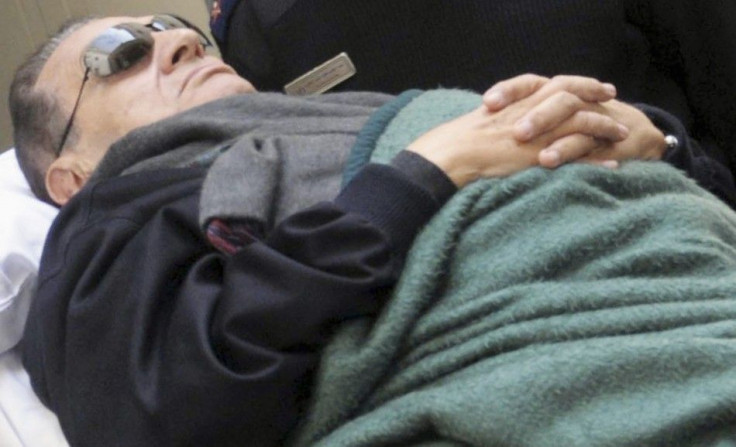Hosni Mubarak Trial: 'He Deserves to End in Humiliation'

The chief prosecutor in the trial against Hosni Mubarak lambasted the former Egyptian president during an hour-long argument that The Associated Press called the harshest assessment of Mubarak's rule ever heard in an Egyptian courtroom.
Prosecutor Mustafa Suleiman addressed the Cairo Criminal Court on Tuesday, accusing Mubarak of imposing ten years of tyranny on the Egyptian people. Mubarak ruled Egypt from 1981 until last February, and Suleiman alleged the that final decade of Mubarak's reign was devoted to assuring that his son would succeed him.
[Mubarak] created a corrupt regime that destroyed political life, and he devoted all of his efforts during the last decade of his reign toward his goal of transferring power to his son Gamal and rigging parliamentary and local elections.
Here we have a president who devoted the last decade of his rule to engineer something that no one in Egypt ever dared to do before -- the succession of his son, said the prosecutor while Mubarak and Gamal sat silently at the back of the court.
His wife wanted to be the mother of the next president after she has been the president's wife, he said. They did not realize that Egypt was not a fiefdom.
Mubarak has been charged with ordering the murder of more than 800 people during the Tahrir Square uprising in January. His sons Gamal and Alaa are also on trial for abuse of power and their role in ordering police to shoot unarmed protestors. If found guilty, all three could face the death penalty.
In the a matter of months, the Egyptian revolution brought Mubarak from an autocratic ruler to a defendant confined inside a cage. The whole country has followed the trial which began in August, albeit often with frustration at the slow place and constant delays.
He deserves to end in humiliation and indignity: From the presidential palace to the defendants' cage and then the harshest penalty, Suleiman told the court.
In May, Mubarak was found guilty of damaging the economy by shutting down the internet during the protests by an administrative court, and fined more than $30 million. Nonetheless, Suleiman found it necessary to bring up allegations that Mubarak damaged Egypt's domestic finances.
The adoption of corrupt economic policies led to price inflation,” said the prosecutor. “The gaps and differences between the classes widened, Egypt’s international and regional role declined and it lost its place under the rule of this tyrant.
“Integrity and transparency went down the drain when the defendant preferred his personal interests to the public, he added.
© Copyright IBTimes 2024. All rights reserved.




















